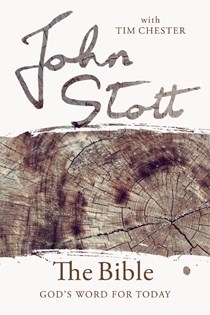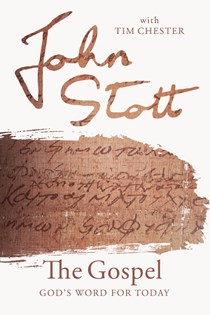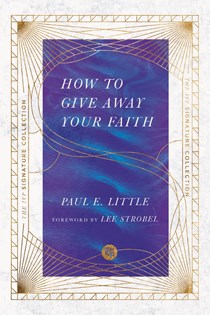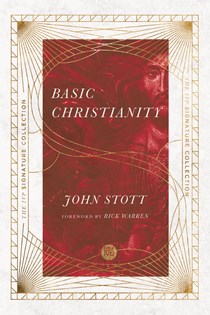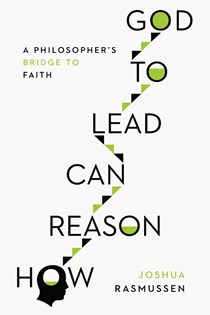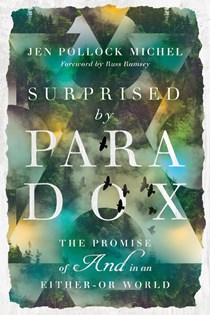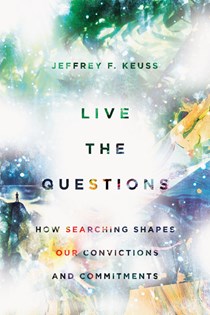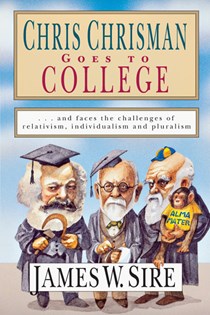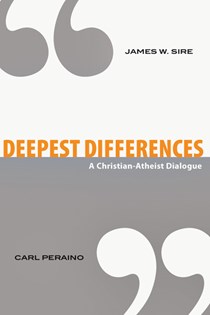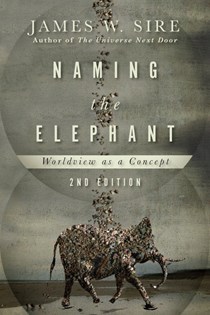Apologetics
-
The Bible
God's Word for Today
by John Stott
With Tim ChesterHow can Christians effectively engage today's world while staying true to Scripture? Calling us to listen well to both the Word and the world, John Stott shows how Christianity can preserve its authentic identity and remain relevant to current realities. With the God's Word for Today series, pastor Tim Chester has updated Stott's classic book The Contemporary Christian ...
-
The Gospel
God's Word for Today
by John Stott
With Tim ChesterHow can Christians effectively engage today's world while staying true to Scripture? Calling us to listen well to both the Word and the world, John Stott shows how Christianity can preserve its authentic identity and remain relevant to current realities. With the God's Word for Today series, pastor Tim Chester has updated Stott's classic book The Contemporary Christian ...
-
How to Give Away Your Faith
The IVP Signature Collection
by Paul E. Little
Foreword by Lee Strobel- Over 1 million sold
Is Christianity good news for the people around you?
Talking about your faith can be intimidating. You may wonder, "How do I know what to say to people? What if I can't answer their questions? What if they think I'm just strange?"
Paul Little has faced these fears and found effective, biblical ways to overcome them. ...
-
Basic Christianity
The IVP Signature Collection
by John Stott
Foreword by Rick Warren and Christopher J. H. Wright- Named a "Book of the Century" by Christianity Today
Who is Jesus Christ? While Jesus and his teaching continue to hold appeal, many people question the plausibility or relevance of the Christian faith. Is it reasonable to believe that Jesus was truly divine? If so, what does it mean for us?
John Stott's accessible, classic book examines ...
-
How Reason Can Lead to God
A Philosopher's Bridge to Faith
by Joshua Rasmussen
Do you seek the truth? Do you value reason, science, and independent thinking? Are you skeptical of beliefs that people maintain merely "on faith," yet you remain interested in the big questions of life? Do you hope there could be a greater purpose to the universe, if only that were realistic? If so, then philosopher Joshua Rasmussen can encourage you in your journey. Beginning ...
-
Surprised by Paradox
The Promise of "And" in an Either-Or World
by Jen Pollock Michel
Foreword by Russ RamseyWord Guild Awards Shortlist — Apologetics/Evangelism
Word Guild Award — Best Book Cover Award
Christianity Today's Book of the Year Award of Merit - The Beautiful Orthodoxy
What if certainty isn't the goal?
In a world filled with ambiguity, many of us long for a belief system that provides straightforward ...
-
Live the Questions
How Searching Shapes Our Convictions and Commitments
by Jeffrey F. Keuss
"Live the questions now. Perhaps you will then gradually, without noticing it, live along some distant day into the answer." —Rainer Maria Rilke Life is full of questions: questions about our identity, our relationships, our faith. Sometimes it seems like there are no easy answers. But our questioning can lead us on a journey into greater understanding and purpose. Jeffrey Keuss ...
-
Chris Chrisman Goes to College
and faces the Challenges of Relativism, Individualism and Pluralism
by James W. Sire
Chris Chrisman, a young Christian, goes to college only to have his world turned upside down. On campus he finds the challenges to his faith -- both intellectual and personal -- almost more than he can bear. Then he meets Bill Seipel and Bob Wong. Together, the three young men, two of them Christians and the other a self-styled atheist, forge a common bond in the quest for truth. In the process ...
-
Deepest Differences
A Christian-Atheist Dialogue
by James W. Sire and Carl Peraino
If you're looking for clear-cut answers to difficult questions about God--or for your guy to score a quick knock-out of a toughened sparring partner--then this book is not for you. But if you're open to an authentic, no-holds barred, respectful dialogue about one of life's most important issues, then take up and read. There are no straw men here. Sparked by a chance meeting between two ...
-
Naming the Elephant
Worldview as a Concept
by James W. Sire
What is a worldview? What lies behind your thoughts about almost everything? For more than thirty years, James W. Sire has grappled with this issue. In his widely used textbook The Universe Next Door, first published in 1976, Sire offered a succinct definition of a worldview and catalogued in summary fashion seven basic worldview alternatives. Students, critics, new literature and continued ...


